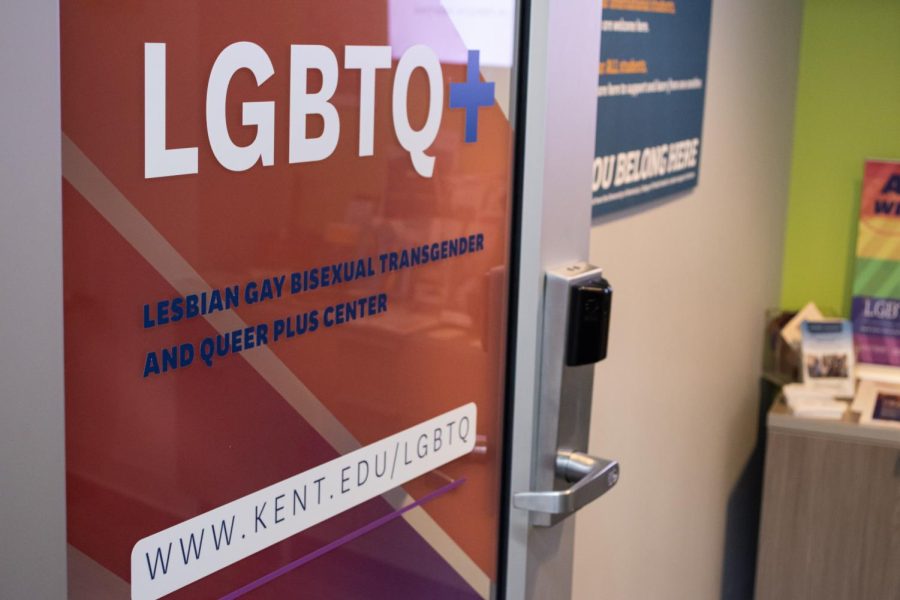Being on the asexuality spectrum as a college student
The LGBTQ+ Center is located on the lower floor of Kent State’s Student Center and is open to any and all students.
February 9, 2023
College is known as a time for young adults to experiment sexually. However, not all students want to participate in new sexual experiences.
Kent State’s LGBTQ+ Center writes that there is a spectrum of asexuality. It is a broad term for anyone who experiences limited or no sexual attraction.
Sophomore studio art major Lukas, who is identified by only first name for privacy, first became aware of his asexuality at around 15 years old.
“It kinda felt like a relief because when I was growing up, I really didn’t know anyone else who was asexual, like any of my friends that I see on a regular basis,” he said. “I met a lot of people online who were in the same boat, so it comforted me.”
Sophomore photography major, Tobias, who is identified by only first name for privacy, also questioned if he was asexual from a young age.
“I kind of identify as it, on and off. The first time I started suspecting I was asexual was in middle school,” Tobias said. “And then I stopped identifying as it, and then I started again when I was 18.”
Lukas and Tobias both consider themselves on the spectrum of asexuality, which ranges from having little sexual attraction to none at all.
“Everyone is different. I have a few friends that are asexual, and we are all very different from each other,” Lukas said. “Asexual people also don’t have to be with people who are asexual. I think that a lot of people overlook the fact that it is a spectrum, and it doesn’t necessarily mean that someone is just never going to have sex.”
Lukas said he believes there is a stigma of being on the asexual spectrum as a college student.
“I feel like if people think of someone asexual that they are repulsed by sex, and they’ll never have sex, but that is not the reality of it,” Lukas said. “Sometimes it can make you feel an outcast just a little bit because, in college, it is such a big thing to have hookups regularly.”
Tobias also said he believes there is judgment surrounding being asexual.
“I feel like a lot of people think that it makes you a prude and no fun,” Tobias said.
Relationships in college when being on the asexual spectrum can also pose a challenge.
“I have been in a relationship, and they weren’t very happy about it, and we actually broke up over it,” Tobias said. “And that’s fair. I think because some people do need to have sex in their relationships.”
Lukas said he has not talked about his asexuality in his current relationship, but he is not worried about his partner’s acceptance.
“Right now, I’m in a relationship,” Lukas said. “We haven’t really talked about it yet, but I think there’s going to be a time we’re both ready because it’s not really based on sexual attraction or anything. It’s based on personality.”
The stigma that students on the asexual spectrum face can be combated with further awareness of what asexuality is.
The Kent State LQBTQ+ Center provides resources for students who may be questioning if they are on the asexual spectrum, along with organizations to support them.
Zoe Finley is a reporter. Contact her at [email protected].


























Melissa Finley • Feb 9, 2023 at 11:06 pm
This is a very insightful perspective! I’ve had very meaningful relationships with both sexes
and have identified as lesbian for thirty plus. years. Now, I feel it’s about friendships that blossom. If they do they do if they don’t they don’t. Some would call this fluid. It’s not! Sometimes it about waiting for the “right” one and not going with the flow. Thank you Zoe for writing this!